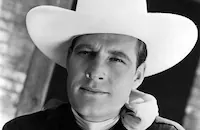This Man Is Mine

Brief Synopsis
Cast & Crew
John Cromwell
Irene Dunne
Constance Cummings
Ralph Bellamy
Kay Johnson
Charles Starrett
Film Details
Technical Specs

Synopsis
In Fairfield, New York, well-to-do Tony and Jim Dunlap cherish their happy marriage and are the envy of their best friends, Bee and Jud McCrea. When news that Jim's former "man-eating" lover, Francesca "Fran" Harper, has just divorced and is returning to Fairfield to stay with Jud, her brother, Jim casually reassures Tony that he has no interest in the woman who left him at the altar and caused a scandal in his conservative, posh community. To avoid any social embarrassment, however, Tony, whose own mother deserted her father, arranges for Jim to meet Fran alone at the McCreas' house.
There, Jim immediately falls under the calculating feminine spell of Fran, who has returned to Fairfield specifically to re-conquer Jim's heart. After ten days of careful plotting, which includes the presence of Mort Holmes, a mysterious young man whom Fran has brought with her to make Jim jealous, Fran draws Jim away from Tony during a bridge party and spends most of the night with him. When a lovesick Jim finally returns home, Tony confronts him and elicits a confession of infidelity out of him. Although heartbroken and disillusioned, Tony declares her intention to prove Fran unworthy and refuses to grant Jim a divorce for six months.
At another party, however, Tony, who has seen Fran kissing Mort, announces to Jim and Fran that she is seeking a divorce and is suing Fran for alienation of affection and naming her as a co-respondent. Outraged by the thought of scandal, the image-conscious Fran rails against Jim for revealing their adultery to Tony and storms away in a fury. Later Jim slugs Fran for her fickleness, then after admitting his wrongs, tries to talk Tony out of the lawsuit. At first reluctant to give up her chance for revenge, Tony agrees to drop her complaint after she hears that Fran has married Mort, who turns out to be a New York aristocrat, and is leaving the country. Cured of his "obsession," Jim reunites with a forgiving Tony.

Director

John Cromwell
Cast

Irene Dunne

Constance Cummings

Ralph Bellamy

Kay Johnson

Charles Starrett

Sidney Blackmer
Vivian Tobin
Louis Mason
Herbert Evans
Crew

Film Details
Technical Specs

Articles
This Man is Mine
Irene Dunne made her Broadway debut in 1923. A few years later, her performance in Show Boat caught the attention of Hollywood and she was signed to a contract by RKO. Dunne's first film would be the Rodgers and Hart musical-comedy Leathernecking (1930). It would be her last upbeat role for a while and then a string of dramatic films would follow including two Fannie Hurst adaptations, Symphony of Six Million and Back Street (both 1932); the surprisingly frank pre-code Ann Vickers (1933); and Consolation Marriage (1931), a melodrama about a marriage of convenience.
This Man Is Mine would be Dunne's fourteenth film within a four year period and in it, despite the dramatics of the storyline, her comedic talent began to show through. As the book, The RKO Girls, puts it, "[Dunne] began a professional transition of genre specialty in This Man Is Mine, which would gravitate her from turgid drawing-room drama to lighthearted comedy. The almost imperceptible changes in her screen image were leading [her] further and further away from the anonymous hoity-toity nobility pose." Even the New York Times noticed the shift. In its review, the Times quipped, "she's still noble Irene Dunne in This Man Is Mine but she's loosening up."
Later the same year, Dunne would star in the musical Sweet Adeline (1934) and the next year would bring the Astaire-Rogers musical Roberta (1935). Finally, in 1936, the films Show Boat, which allowed Dunne to bring her popular stage role to the big screen, and Theodora Goes Wild, a screwball romp in which she played a repressed novelist, would confirm Dunne's new, more lighthearted screen persona.
As for This Man Is Mine, Dunne's co-stars included not only Bellamy and Constance Cummings, but also Kay Johnson who was married to the film's director, John Cromwell. Johnson had a rather brief Hollywood career, which lasted just fourteen years. Some of her more memorable pictures included the 1929 Cecil B. DeMille drama Dynamite; The Spoilers (1930) opposite Gary Cooper; and Of Human Bondage (1934) where she supported Bette Davis. Johnson married director John Cromwell in 1929; their son is Oscar® nominated actor James Cromwell.
Another familiar face in This Man Is Mine is Charles Starrett as Jud McCrae. Starrett would later be know for his Western roles, particularly that of the Durango Kid. He would play the Durango Kid in dozens of B-Westerns for Columbia in the 1940s and 50s.
This Man Is Mine was based on a play by Anne Morrison Chapin called Love Flies in the Window. The screenplay was adapted by Jane Murfin, whose Broadway play Smilin' Through would later be adapted to film twice (the first version starred Norma Shearer, the second featured Jeanette MacDonald). Murfin also co-wrote the script for several highly regarded pictures; among her screen credits are Alice Adams (1935) and The Women (1939).
Producer: Pandro S. Berman, Merian C. Cooper
Director: John Cromwell
Screenplay: Jane Murfin, Anne Morrison Chapin (play)
Cinematography: David Abel
Film Editing: William Morgan
Art Direction: Carroll Clark, Van Nest Polglase
Music: Roy Webb
Cast: Irene Dunne (Tony Dunlap), Constance Cummings (Francesca Harper), Ralph Bellamy (Jim Dunlap), Kay Johnson (Bee McCrae), Charles Starrett (Jud McCrae), Vivian Tobin (Rita).
BW-76m.
by Stephanie Thames

This Man is Mine
Quotes
Trivia
Notes
The working titles for this film were Transient Love and Husbands Come and Go. Hollywood Reporter and Motion Picture Daily reviewed the film as Transient Love. According to International Photographer, Edward Cronjager worked on the film in some capacity. RKO borrowed Constance Cummings from Twentieth Century for this production, which was included in a list of "boycotted" films compiled by the Catholic Church in Detroit. Modern sources add Adda Gleason to the cast.














